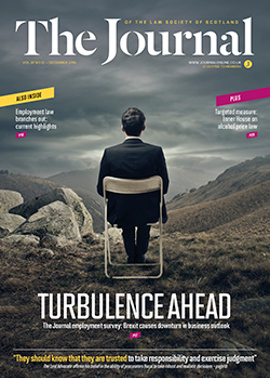Tax: is your firm paying over the odds?
The spotlight into the tax affairs of SMEs is shining brighter than ever, as evidenced by HMRC collecting an additional £470 million from small businesses for the year ending 31 March 2015. Understandably, tax season is a particularly anxious time as companies strive to file and pay their bill on time while avoiding penalties. Steve Deutsch, chief executive of Wesleyan Bank, outlines 10 top tips firms can action to reduce future tax liabilities.
1. Review the business structure
Sole traders working from home should consider setting up a limited company to benefit from lower business rates. This would enable them to pay corporation tax, currently at 20% but which will drop to 17% by 2020, instead of income tax at 20% or 40% for higher rate taxpayers.
2. Operate from home
Self-employed businesses that spend time working from home can save tax by claiming for a proportion of a variety of home-related costs. These include council tax, insurance, mortgage interest, electricity and heating, water, and landline and telephone bills.
3. Keep it in the family
Business owners can currently earn £11,100 of tax free income from assets. But by employing their spouse as a director or partner they can distribute the income depending on their personal allowances, and transfer assets or gifts to family members, which is tax free.
4. Use finance to fund major investments
Businesses should consider using external finance providers when seeking funding for any major capital expenditure projects. Specialist lenders can secure competitive rates and manage each transaction meticulously from start to finish. Companies can also opt to lease the assets rather than signing up to a straight hire purchase deal. Although there is a cost to the debt, it is tax deductible, which can offer short and long-term cash benefits.
5. Leverage the Annual Investment Allowance (AIA)
The AIA, set to £200,000 from April 2016, allows businesses to write off the costs of certain assets against profits in the year of purchase. This helps to bring quicker tax relief against capital expenditure. Most assets purchased for business use qualify, including IT investments, office equipment and plant and machinery.
6. Consider the flat rate VAT scheme
This scheme allows businesses to benefit from a single, fixed rate of VAT and apply the percentage to their gross turnover during a quarter and pay this to HMRC. Rates vary depending on a business's industry sector but can offer a welcome boost to cash flow.
7. Claim for expenses
Organisations can reduce their tax bill by claiming for various company expenditure such as business travel (e.g. mileage), IT equipment and tea and coffee making facilities which can be written off as a business expense.
8. Hire an accountant
Although representing an additional cost, accountants can save significant amounts of time and money by managing a business's financial affairs and alleviating the stress associated with paying tax bills.
9. Introduce tax free benefits
Offering employee benefits can help to save tax both for a business and its staff. Popular tax free incentives include childcare vouchers, the Cycle to Work scheme which can save up to 25% of the cost of a new bike, workplace parking and meals in a staff canteen.
10. Plan ahead
Businesses should always plan ahead and set aside extra money when tax deadlines approach. But in the event of them being taken by surprise, organisations may wish to consider applying for short-term finance to cover the shortfall instead of having to delve into vital cash reserves.
Steve Deutsch comments: “Tax season is traditionally a stressful time for all organisations, and the pressure on some business owners could intensify as HMRC scrutinise their financial activities more closely. As a result, an increasing number of firms are turning to tax funding as a simple and effective means to pay their tax bills without putting strain on their cash flow.
“Wesleyan Bank offers an extensive range of solutions to enable businesses to spread the cost of their tax bills over six or 12 months, limiting the impact on their day-to-day finances so they can utilise working capital where they really need it.”
For an instant quote to spread the cost of your tax bill, or to apply online, click here
In this issue
- FAI Rules: a guide to the consultation
- Saying sorry – is it enough?
- Repairing obligations for common parts
- Journal reader survey feedback report
- Reading for pleasure
- Tax: is your firm paying over the odds?
- Opinion: Judith Robertson
- Book reviews
- Profile
- President's column
- Altered deeds? Mind the rules
- The clouds gather
- Turning points: employment law into 2017
- Policy and the public interest
- Above the minimum
- Where code meets custom
- Child orders: mind the gap
- EU law, a family affair
- People on the move
- Information age?
- The limits of free web access
- Tenant farming: the new guidance
- Insolvency: cross-border clashes
- Foul play on the agency front
- Scottish Solicitors' Discipline Tribunal
- Comm prop and the Holy Grail
- Leisure – the serious side
- New anti-money laundering support
- Law reform roundup
- Brexit: helping to shape the outcome
- Transition to Lockton – your questions answered
- Expertise plus: promoting a sector strength
- Paralegal pointers
- Time to look back – and forward
- Everything comes...
- Ask Ash






